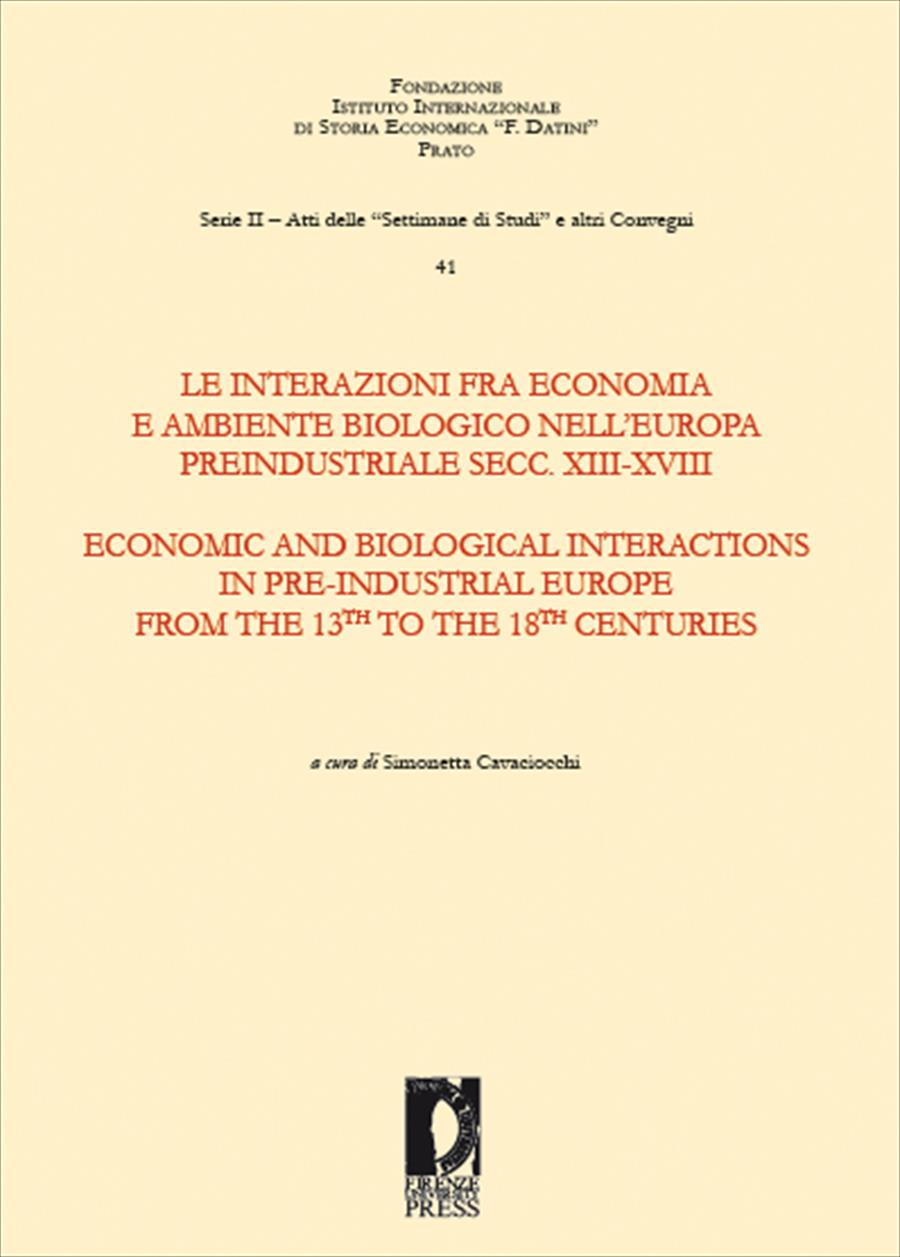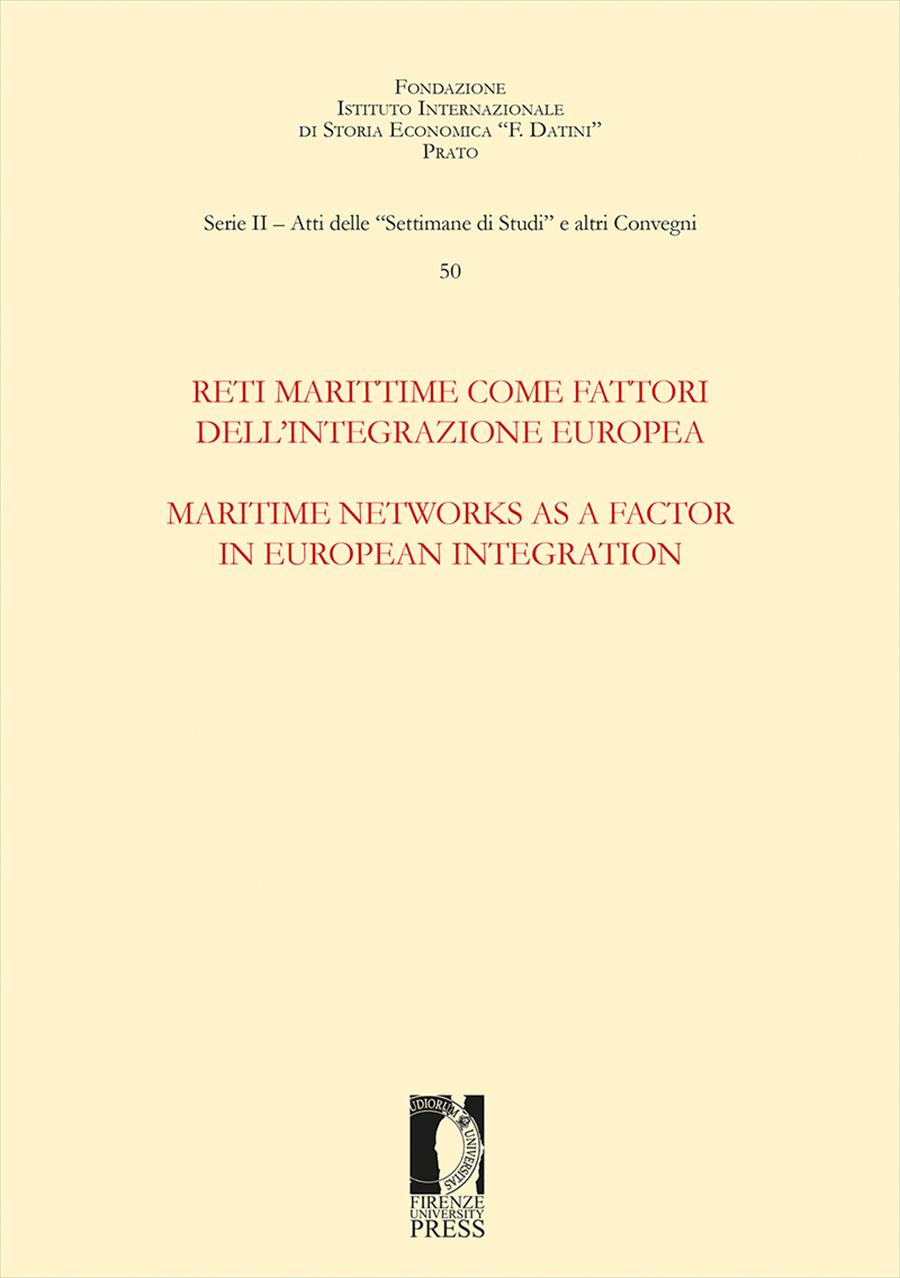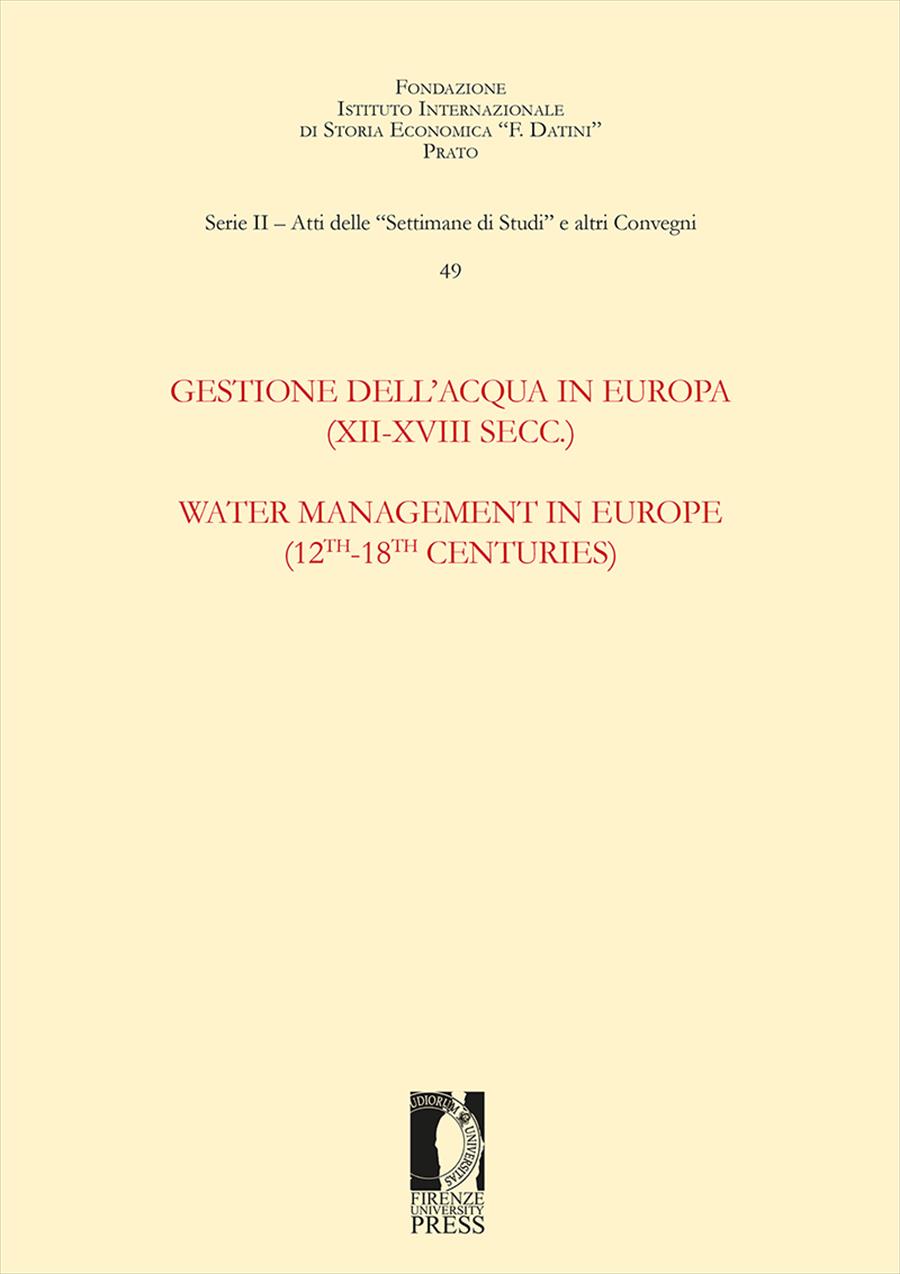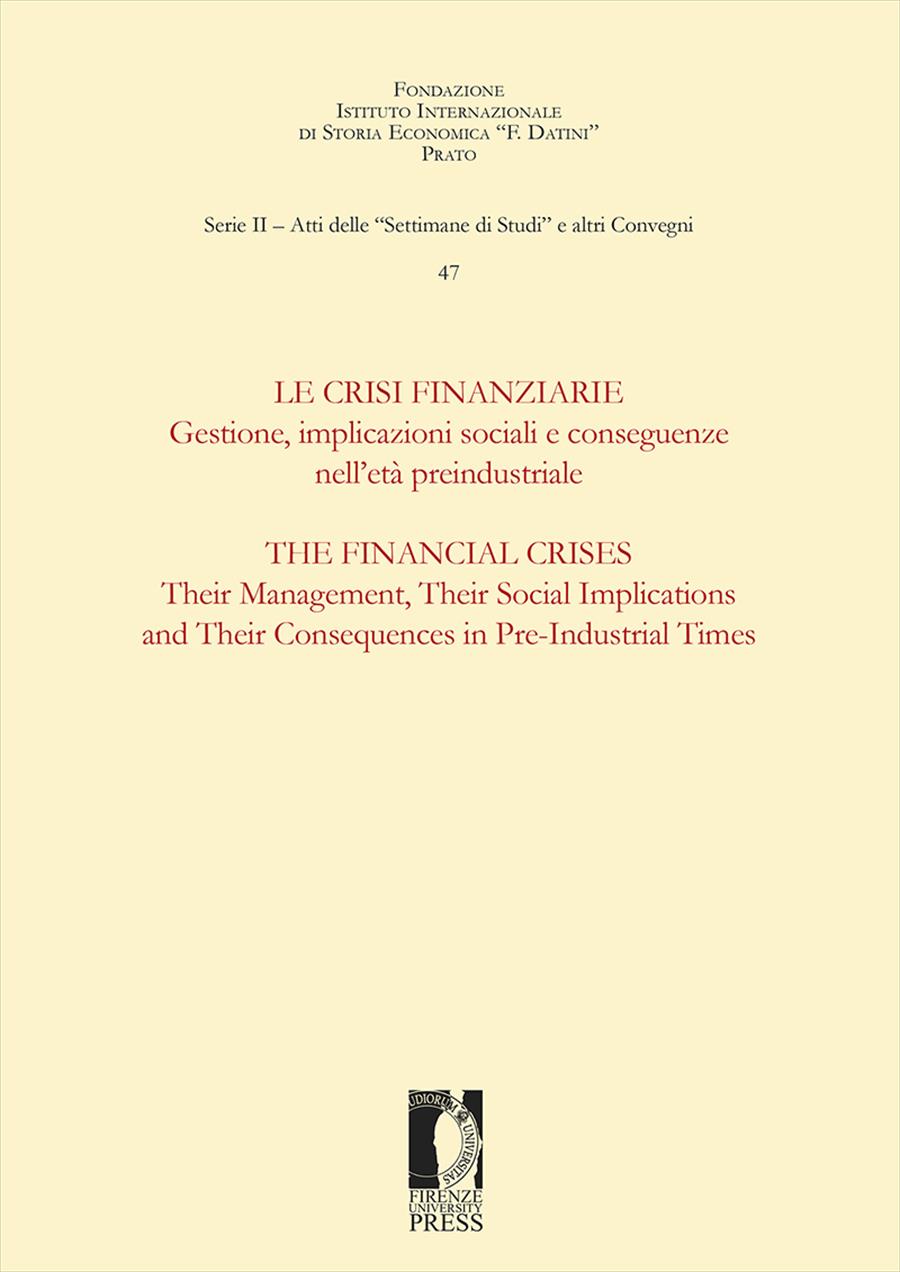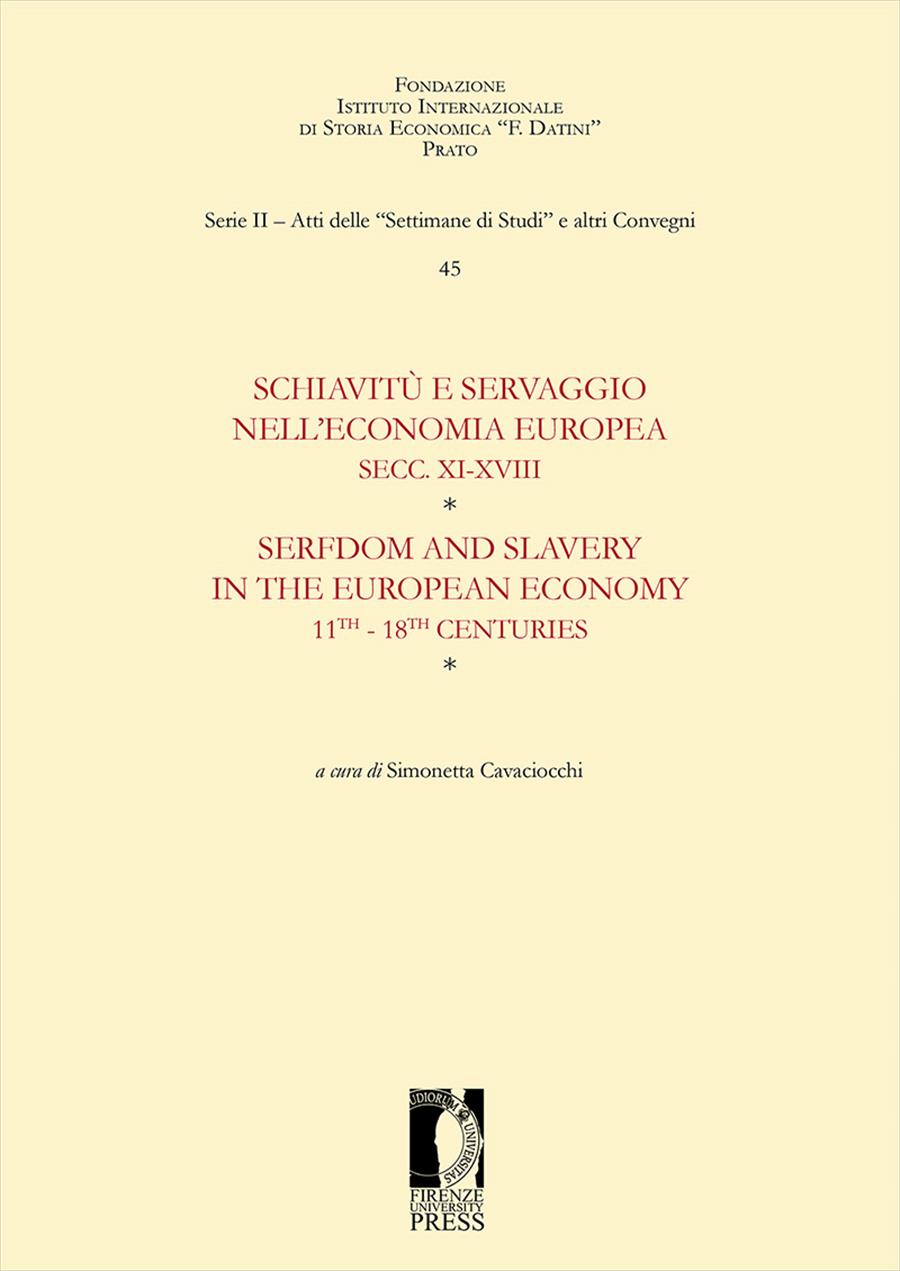Le interazioni fra economia e ambiente biologico nell'Europa preindustriale secc. XIII-XVIII. Economic and biological interactions in pre-industrial Europe from the 13th to the 18th centuries
- Edited by:
- Simonetta Cavaciocchi,
Pests, parasites and pathogenic agents have exerted a notable influence on the process of economic development of pre-industrial Europe, in view of their influence on the health, longevity and reproduction of human beings, plants and animals. On each occasion man has reacted to biological uncertainty with responses that were public or private, formal or informal and differed in both efficacy and cost. Success has always been partial, and dependent on experience, knowledge and the investment of economic resources.
These reciprocal influences have never been allocated an appropriate or convincing place in the institutional model or those of Smith, Malthus, Ricardo or Marx, typically exploited to describe and explain the flux and reflux of the economic development of pre-industrial Europe.
In these proceedings of Study Week promoted by the Fondazione Datini, the leading experts in the sector have undertaken to analyse, exemplify and discuss the precise nature of the complex interactions between economic and biological processes and agents. Adopying a stimulating, innovative and interdisciplinary approach, they appraise the degree to which such processes acted in reciprocal independence, whether there was a significant co-evolution and what prospects there are for developing explanatory models that better grasp the essentially bilateral nature of such interactions.
- Keywords:
- Atti di convegno uf Convegno,
- Economia,
- Biologia,
- DOI: 10.36253/978-88-8453-596-2
- Series: Atti delle «Settimane di Studi» e altri Convegni
- Scientific Board: Fondazione Istituto Internazionale di Storia Economica «F. Datini»
- Language: Italian
- Subjects: Economics Economic History
Purchase
F. Datini International Institute of Economic History, Italy
- Publication Year: 2010
- Pages: 640
- eISBN: 978-88-8453-596-2
- Content License: CC BY-NC-ND 3.0 IT
- © 2010 Author(s)
- Publication Year: 2010
- Pages: 640
- ISBN: 978-88-8453-585-6
- Content License: CC BY-NC-ND 3.0 IT
- © 2010 Author(s)
- Publication Year: 2010
- eISBN: 978-88-9273-709-9
- Content License: CC BY-NC-ND 3.0 IT
- © 2010 Author(s)
Bibliographic Information
Book Title
Le interazioni fra economia e ambiente biologico nell'Europa preindustriale secc. XIII-XVIII. Economic and biological interactions in pre-industrial Europe from the 13th to the 18th centuries
Editors
Simonetta Cavaciocchi
Peer Reviewed
Number of Pages
640
Publication Year
2010
Copyright Information
© 2010 Author(s)
Content License
Metadata License
Publisher Name
Firenze University Press
DOI
10.36253/978-88-8453-596-2
ISBN Print
978-88-8453-585-6
eISBN (pdf)
978-88-8453-596-2
eISBN (xml)
978-88-9273-709-9
Series Title
Atti delle «Settimane di Studi» e altri Convegni
Series ISSN
2704-6354
Series E-ISSN
2704-5668
